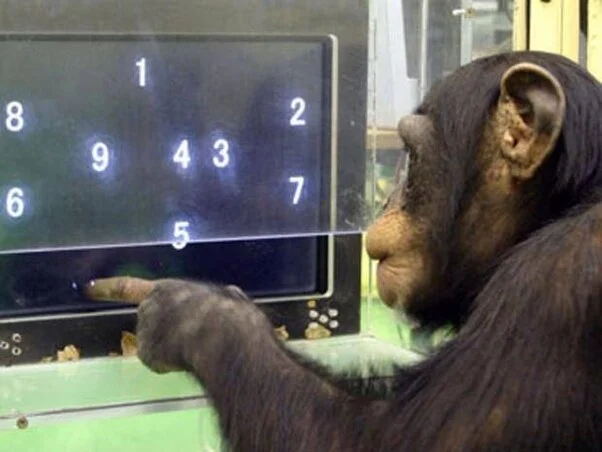What is a Language?
You know what language is. So do I. We might not actually know how to use language to describe what it is perfectly, but we know, on the inside, what it is. Like happiness, it comes to us so naturally that trying to define it leaves us frantically walking in circles, unsure of where to put our feet down because as powerful as labeling something can be, it often limits the scope of how we might see it.
Language is a wonderful tool but it can be a dangerous one. Language, combined with complex social hierarchy, has allowed for persecution, mistreatment, abuse, and imbalance of every kind. Just as the language I use here seeks to expose the ways language itself has closed off our minds, plenty of people use language for just the opposite purpose: to sharpen close-minded perspectives and build experiences that reflect a chosen lexicon in lieu of reality. The “We speak English in America” phenomenon is a perfect example. Language should not construct reality, it should attempt to reveal it. Maybe language is meant to be as experimental as it is communicative. “Standard English” might not just be inaccurate, it might be Language’s Antichrist…
The lyrebird possesses one of the most complex birdsongs in the entire world.
Do any other animals besides humans have language? Most linguists argue no, and I tend to agree. The main reason why is because an inherent quality of language is that it is infinitely productive. This might sound like an overstatement, but if it weren’t true, we wouldn’t be able to adopt new words as readily as we do. We have millions of words and we create new ones everyday with ease. We even have synonyms, like happiness and joy, or wealth and riches. Animals can’t do this. Sure, some have gestures or vocal sounds that communicate in specific ways, but they are built for their natural environment and they can’t adapt within a generation or two. It takes a long time for new communicative structures and gestures to evolve, but somewhere along the way, humans broke off from the rest of the pack.
Whether or not human language and animal sign systems are related or not remains an open debate. Some linguists believe that human language is radically different from the songs of birds or the facial expressions of chimpanzees, that is, animal and human communication are born from entirely different processes. Noam Chomsky, a leading linguist who I tend to agree with on most linguistic matters, believes that they exist on the same continuum; humans possess a far more emergent system based on their more complex communicative abilities. Our words and speech sounds are arbitrarily mapped to meanings in our heads, and this skill is what allows us to combine simple ideas into the abstractions that compose human language.
I might do a post in the future about possible “languages” used by animals, but what I wanted to explore here is how we define “language” in linguistic spaces and how this both empowers and limits our abilities to work with and study language.
In my college linguistic courses (my favorite textbook) I was taught that human language is: (1) discrete, (2) combinatorial, (3) unbounded, and (4) recursive. What the hell does any of that mean? As extra as it might sound, these are actually very useful ideas that reveal a lot about language’s structure, so let’s break them down one-by-one.
Discrete – unlike its homophone, discreet, for something to be discrete means that it is made up of individual parts. Like a piano chord, words are made up of individual sounds that combine to create something meaningful.
Combinatorial – this one is the easiest to define. It just means that language is able to take those discrete parts and combine them in different ways.
Unbounded – similar to the idea of productivity discussed above, this refers to a language’s infinite ability to keep creating new words. As gibberish can attest to, there is no shortage of possible words, only of the meanings to match. But as new situations, objects, ideas, etc. arise, languages change naturally, not over hundreds of years, but over short timespans.
Recursive – for a language to be recursive means that it it able to embed thoughts within other thoughts. On a large scale, this allows us to create infinite run-on sentences. "Mom said that Dad said after you finish that game which you have been playing for hours while I’ve been doing the dishes that it is my turn on the Xbox.” While an English teacher would never accept this sentence in an essay, it is perfectly grammatically correct. On a smaller scale, it is what allows us to form sentences at all, offering subjects the ability to act upon subjects and represent relationships.
These four qualities allow for us to use language in ways that expand our view of the world and how we can make use of it. Without language, we wouldn’t have been able to create the societies we live in and so, while we take it for granted, it is the greatest and most unique gift that humanity possesses (besides perhaps the opposable thumb). This is not the only way to think about these ideas, of course, and they are only part of a theory. Charles Hockett has slightly different classifications and uses different words for similar concepts. Two idea which Hockett includes that I would also like to add are the fact that language also possesses the properties of arbitrariness and displacement.
Arbitrariness means that sounds of language are not specifically grounded in something objective. This is why all languages are different and how tree can be tree in English and árbol in Spanish. There is evidence for the fact that not all of our language is actually arbitrary. In the “Kiki and Bouba” study, students from very different linguistic backgrounds were asked to label the shapes below based on nothing but first instinct. One is kiki and one is bouba.
Which is which? It’s obvious. The jagged one just screams KIKI, doesn’t it? Almost everyone on the planet who tries this test agrees that the left is a kiki and the right is a bouba. And several other tests have been done, such as with certain onomatopoeia like “swish” or “crack,” which seem to signal that some of our meaning-sound mapping is not as arbitrary as we once thought. Still, it is clear that for the most part, language is arbitrary.
Displacement means that language can be used outside of immediate circumstance or, in other words, you can talk about something that isn’t in the room with you or even something that doesn’t exist at all. While not all language involves displacement, the fact that a lot of it does is somewhat astounding. Even though there is some evidence for other qualities on this list found in animal communication, we have never found a species that is able to communicate about something that isn’t currently being experienced or about to be experienced. There is no talking about weekend plans for a group of monkeys; they only live in the present. This is evident by the extreme short-term memory abilities of chimpanzees. So, while we can sit inside for hours at a time thinking about philosophy, mathematics, astronomy, or something else entirely, the thoughts of animals seem to stay in the realm of what is immediate. Or are they? Who is to say what animals are thinking? Maybe there is some type of communication happening that doesn’t take the form of language and which we aren’t thinking about in the right way. It sounds silly, but just as a dog can’t seem to learn our languages, why should we assume we could learn theirs?
A chimpanzee taking place in a short-term memory study.
With all that being said, what is a language’s purpose then? Is language a tool which helps us connect with each other? Ideally it would be, but who knows if that’s really true. It serves to divide just as heavily. Is language’s purpose to be a more specific form of communication? Maybe, but if so, why is there still so much misunderstanding if we’ve been talking as homo sapiens for 100,000 years?
Maybe language doesn’t have a purpose. Maybe it is a good gift, maybe it’s an evil one, or maybe it’s a bit of both and more. We’ll only find out if we continue to use language in new ways that aren’t afraid to break boundaries and build them, seeing language as a continuous cycle of expression, an imperfect and arbitrary reflection of the world. It’s a world that we claim to know so much about, yet we don’t even know why we’re the only ones who can talk about it. Maybe we really are special, or maybe we’ll only realize we aren’t when we stop believing we must be the only ones who are. After all, the Kiki and Bouba study shows, we have subconscious information that we aren’t aware of. We can only get to the root of that inner knowledge by questioning what we know.



